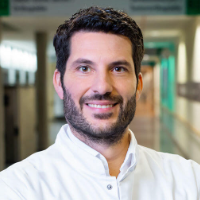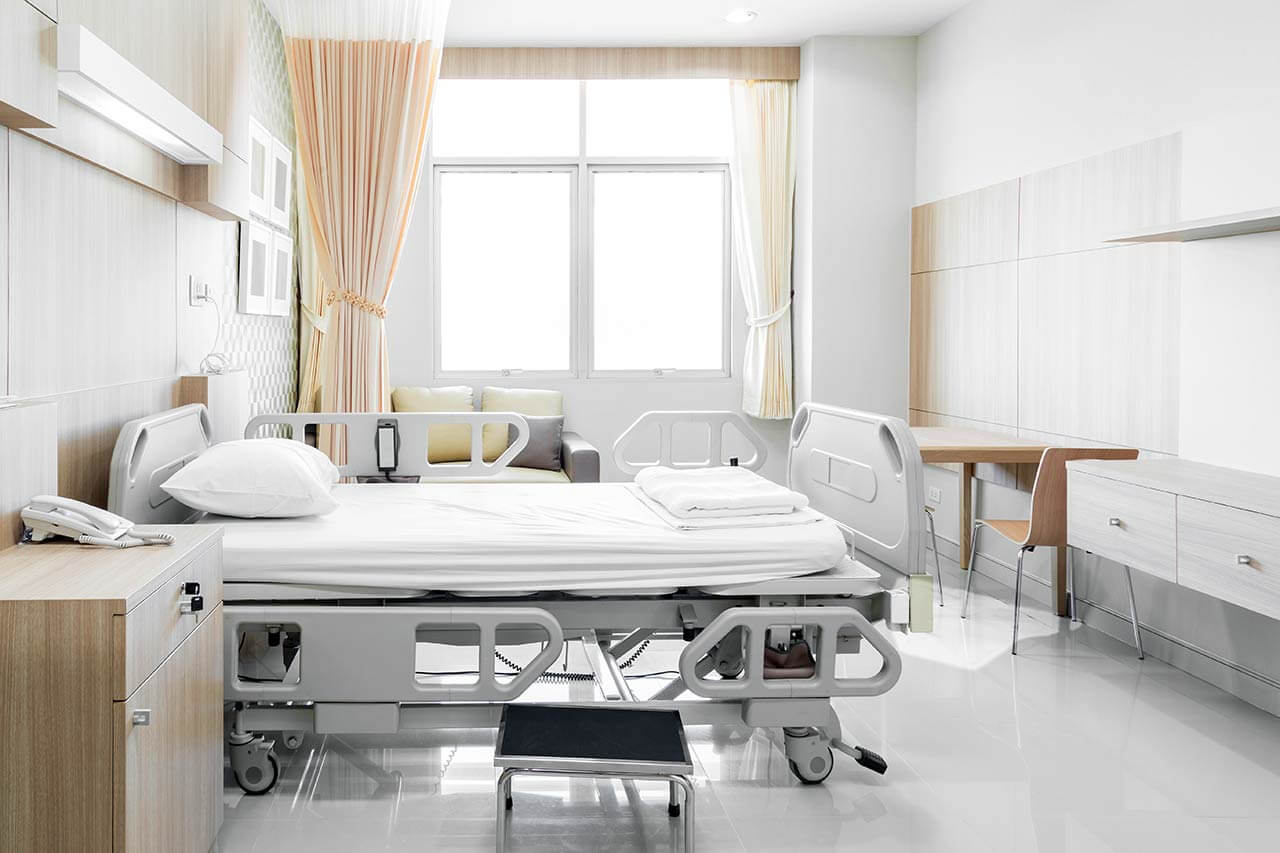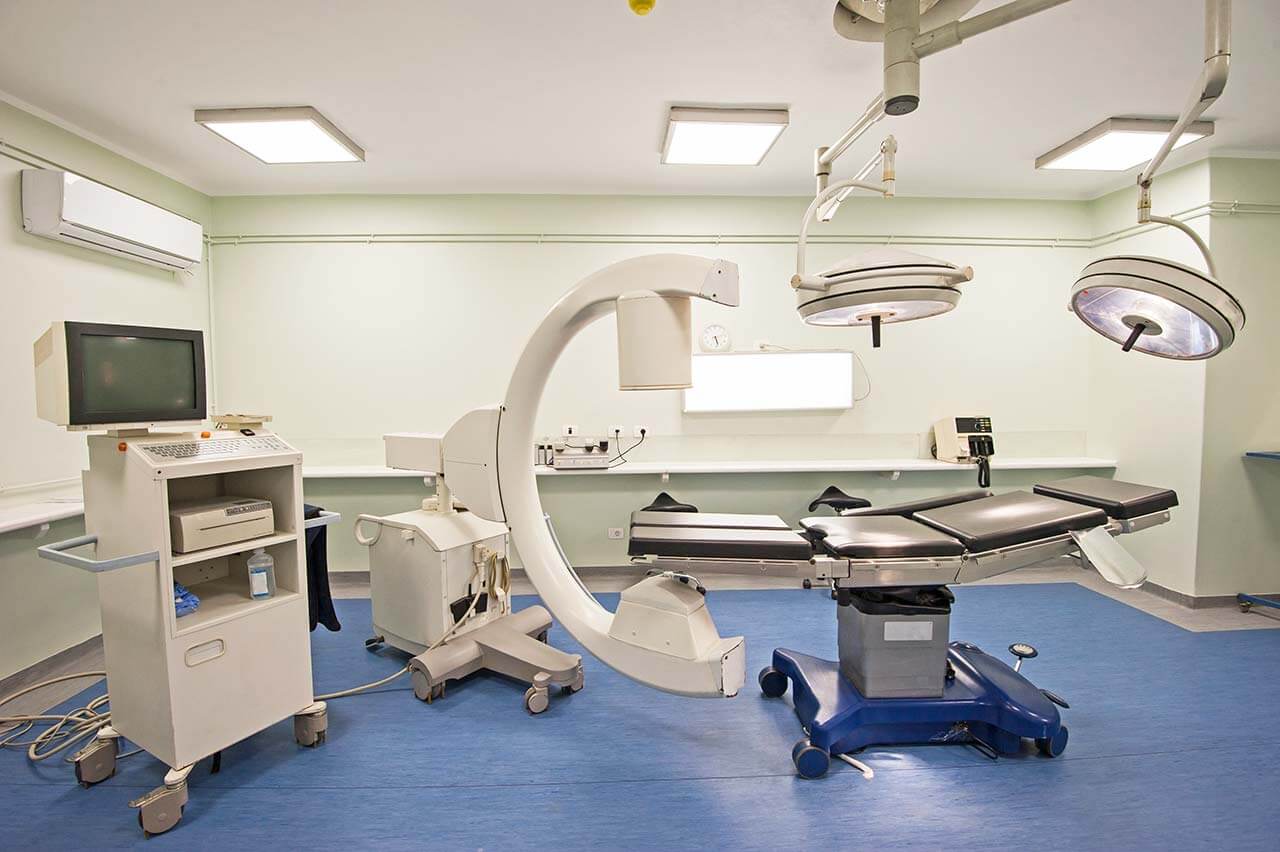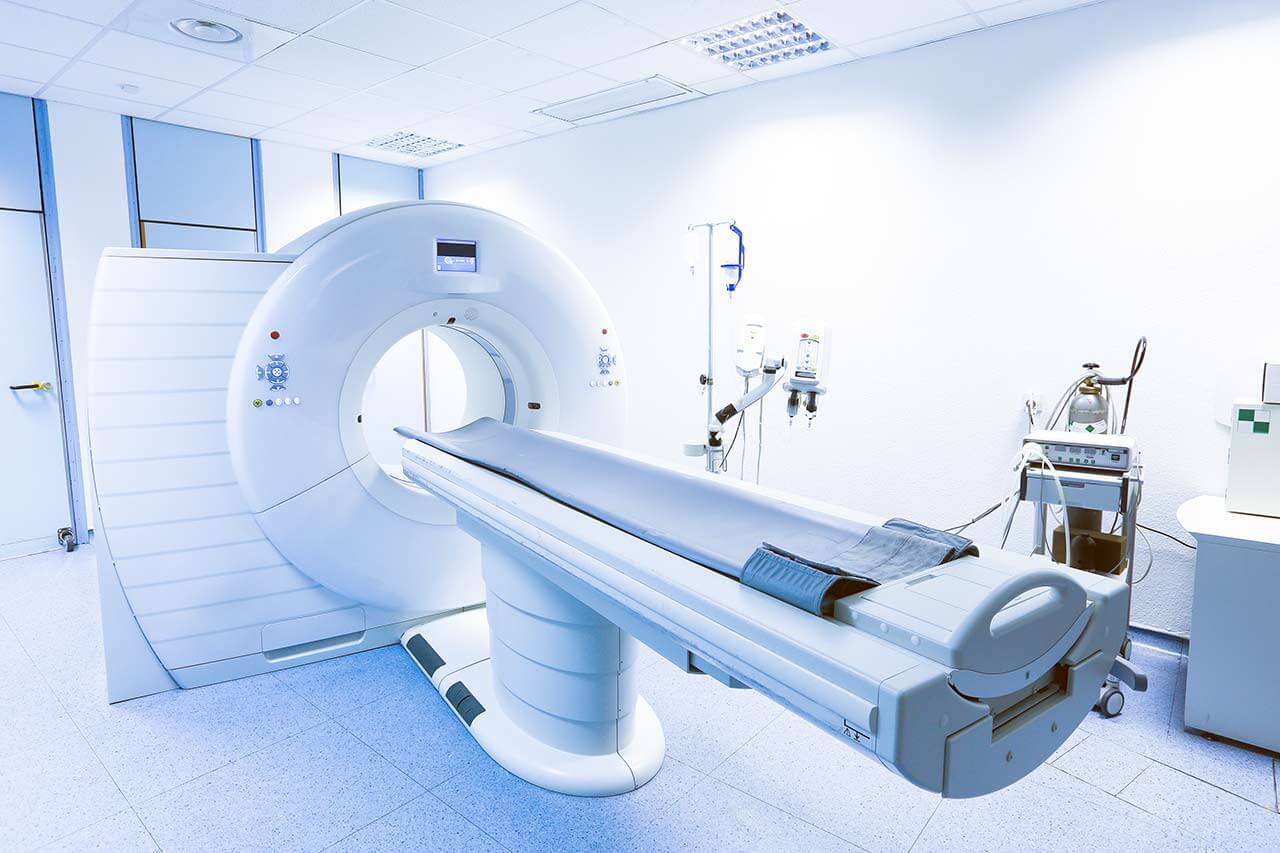
The program includes:
- Initial presentation in the clinic
- clinical history taking
- review of medical records
- physical examination
- eye examination
- laboratory tests:
- complete blood count
- biochemical analysis of blood
- antinuclear antibodies- ANA (SSA/Ro, SSB/La)
- rheumatoid factor (RF)
- Anti-dsDNA
- Erythrocyte sedimentation rate (ESR)
- C-reactive protein (CRP)
- indicators blood coagulation
- mouth (salivary gland) biopsy on indications
- salivary flow
- Schirmer test
- nursing services
- services of all leading experts
- explanation of individual treatment plan
Required documents
- Medical records
Service
You may also book:
 BookingHealth Price from:
BookingHealth Price from:
About the department
The Department of Ophthalmology at the Helios Hospital Berlin-Buch offers the full range of diagnostic and therapeutic services for patients with diseases of the eye and its appendages. The department’s specialists use cutting-edge laser systems in their work, which can improve or maintain vision even in the most difficult clinical situations. The diagnostic and therapeutic process is carried out in strict accordance with the protocols of the German and European Societies of Ophthalmology. The Head Physician of the department is Dr. med. Christoph von Sonnleithner.
One of the department's key focuses is the treatment of cataracts and astigmatism using an innovative femtosecond laser. The treatment technique is highly accurate and effective. Laser energy (focused and amplified light) acts on the tissue for several hundred femtoseconds, but has a strong effect on the lens and cornea of the eye. The femtosecond laser procedures to treat cataract are an excellent alternative to scalpel surgery. The procedure itself consists in replacing the lens and usually lasts only about 10-15 minutes. The patient practically does not feel pain. In addition, cataract surgery may be combined with astigmatism treatment. Thus, the patient can avoid another operation and at the same time improve visual acuity.
The ophthalmologists of the department also specialize in surgical interventions to treat amblyopia, eye tumors, macular degeneration, retinal detachment, occlusion of the lacrimal ducts, orbital injuries and other pathologies.
Of particular interest to the department is the correction of strabismus in adults. Before treatment, the patient undergoes the comprehensive diagnostics, according to the results of which the optimal treatment option is selected. The aim of the treatment is not only to improve vision, but also to restore the physiological position of the eyes. The surgical interventions of this kind are performed by specially trained surgeons who possess expert knowledge about the interaction of the eye muscles and have extensive experience to achieve the optimal result.
The main clinical focuses of the department include:
- Laser therapy
- Femtosecond laser surgery for cataracts, astigmatism and myopia
- Argon laser treatment for diabetic retinal angiopathy and other retinal circulatory disorders
- Treatment of secondary cataract and angle-closure glaucoma using an Nd-YAG laser
- Cyclophotocoagulation for the reduction of intraocular pressure in glaucoma
- Treatment of cataracts
- Femtosecond laser surgery to treat cataract
- Implantation of intraocular lenses (multifocal and toric lenses, blue filter lenses, aspherical lenses)
- Secondary implantation of an intraocular lens and artificial lens replacement
- Surgery to reduce intraocular pressure in glaucoma
- Cyclophotocoagulation
- Iris surgery (iridotomy, iridectomy)
- Trabeculectomy
- Drainage installation to reduce intraocular pressure
- Refractive eye surgery to correct visual impairment
- Implantation of phakic intraocular lenses
- Vitreous replacement
- Simultaneous correction of ametropia and presbyopia with multifocal lenses (replacement of presbyopic lenses, PRELEX)
- Correction of astigmatism using a femtosecond laser
- Retinal and vitreous surgery
- Pars plana vitrectomy (minimally invasive, seamless surgical procedure for retinal detachment, hemorrhage, pathological macular lesions, clouding or damage to the lens of the eye)
- Scleral filling for retinal detachment
- Injection therapy for macular degeneration and retinal hemorrhage
- Cryotherapy and laser therapy for localization and scarring of the retinal holes
- Surgery of the anterior segment of the eye
- Removal of conjunctival and corneal tumors
- Pterygium removal
- Corneal transplantation (posterior, anterior and radical keratoplasty) for the treatment of opacities and swelling (dystrophy, keratopathy, keratoconus)
- Plastic reconstructive eyelid surgery
- Treatment of entropion, ectropion, ptosis
- Blepharoplasty (eyelid plastic surgery)
- Tumor removal with eyelid reconstruction
- Eyeball removal followed by prosthetics
- Lacrimal surgery
- Probing and irrigation of the lacrimal passages
- Silicone drainage implantation
- Strabismus surgery
- Operations on the rectus and oblique oculomotor muscles
- Revision operations after initial correction
- Treatment of eye muscle paralysis
- Orbital surgery (in collaboration with the Department of Adult and Pediatric Otolaryngology, Neurosurgery)
- Other therapeutic options
The Department of Ophthalmology at the Helios Hospital Berlin-Buch offers the full range of diagnostic and therapeutic services for patients with diseases of the eye and its appendages. The department’s specialists use cutting-edge laser systems in their work, which can improve or maintain vision even in the most difficult clinical situations. The diagnostic and therapeutic process is carried out in strict accordance with the protocols of the German and European Societies of Ophthalmology. The Head Physician of the department is Dr. med. Christoph von Sonnleithner.
One of the department's key focuses is the treatment of cataracts and astigmatism using an innovative femtosecond laser. The treatment technique is highly accurate and effective. Laser energy (focused and amplified light) acts on the tissue for several hundred femtoseconds, but has a strong effect on the lens and cornea of the eye. The femtosecond laser procedures to treat cataract are an excellent alternative to scalpel surgery. The procedure itself consists in replacing the lens and usually lasts only about 10-15 minutes. The patient practically does not feel pain. In addition, cataract surgery may be combined with astigmatism treatment. Thus, the patient can avoid another operation and at the same time improve visual acuity.
The ophthalmologists of the department also specialize in surgical interventions to treat amblyopia, eye tumors, macular degeneration, retinal detachment, occlusion of the lacrimal ducts, orbital injuries and other pathologies.
Of particular interest to the department is the correction of strabismus in adults. Before treatment, the patient undergoes the comprehensive diagnostics, according to the results of which the optimal treatment option is selected. The aim of the treatment is not only to improve vision, but also to restore the physiological position of the eyes. The surgical interventions of this kind are performed by specially trained surgeons who possess expert knowledge about the interaction of the eye muscles and have extensive experience to achieve the optimal result.
The main clinical focuses of the department include:
- Laser therapy
- Femtosecond laser surgery for cataracts, astigmatism and myopia
- Argon laser treatment for diabetic retinal angiopathy and other retinal circulatory disorders
- Treatment of secondary cataract and angle-closure glaucoma using an Nd-YAG laser
- Cyclophotocoagulation for the reduction of intraocular pressure in glaucoma
- Treatment of cataracts
- Femtosecond laser surgery to treat cataract
- Implantation of intraocular lenses (multifocal and toric lenses, blue filter lenses, aspherical lenses)
- Secondary implantation of an intraocular lens and artificial lens replacement
- Surgery to reduce intraocular pressure in glaucoma
- Cyclophotocoagulation
- Iris surgery (iridotomy, iridectomy)
- Trabeculectomy
- Drainage installation to reduce intraocular pressure
- Refractive eye surgery to correct visual impairment
- Implantation of phakic intraocular lenses
- Vitreous replacement
- Simultaneous correction of ametropia and presbyopia with multifocal lenses (replacement of presbyopic lenses, PRELEX)
- Correction of astigmatism using a femtosecond laser
- Retinal and vitreous surgery
- Pars plana vitrectomy (minimally invasive, seamless surgical procedure for retinal detachment, hemorrhage, pathological macular lesions, clouding or damage to the lens of the eye)
- Scleral filling for retinal detachment
- Injection therapy for macular degeneration and retinal hemorrhage
- Cryotherapy and laser therapy for localization and scarring of the retinal holes
- Surgery of the anterior segment of the eye
- Removal of conjunctival and corneal tumors
- Pterygium removal
- Corneal transplantation (posterior, anterior and radical keratoplasty) for the treatment of opacities and swelling (dystrophy, keratopathy, keratoconus)
- Plastic reconstructive eyelid surgery
- Treatment of entropion, ectropion, ptosis
- Blepharoplasty (eyelid plastic surgery)
- Tumor removal with eyelid reconstruction
- Eyeball removal followed by prosthetics
- Lacrimal surgery
- Probing and irrigation of the lacrimal passages
- Silicone drainage implantation
- Strabismus surgery
- Operations on the rectus and oblique oculomotor muscles
- Revision operations after initial correction
- Treatment of eye muscle paralysis
- Orbital surgery (in collaboration with the Department of Adult and Pediatric Otolaryngology, Neurosurgery)
- Other therapeutic options
Curriculum vitae
Higher Education and Professional Career
- Since 01.2025 Head Physician, Department of Ophthalmology at the Helios Hospital Berlin-Buch.
- 01.2019 - 12.2024 Senior Physician, Department of Ophthalmology, Charite University Hospital Berlin; Head of the Laser Refractive Surgery Section; Deputy Head of the Oculoplastic Surgery Section; Deputy Head of the Outpatient Surgery Unit; Specialist in quality management system certification according to ISO 9001:2015 standards.
- 06.2014 - 12.2018 Senior Resident, Department of Ophthalmology, Charite University Hospital Berlin.
- 06.2014 Board certification in Ophthalmology.
- Since 05.2014 Fellow of the European Board of Ophthalmology (FEBO).
- 04.2009 - 04.2014 Clinical Residency, Department of Ophthalmology, Charite University Hospital Berlin.
- 12.2008 Doctoral thesis defense, magna cum laude. Subject: "Remote results of treatment of cervical intraepithelial neoplasia (CIN) by laser vaporization in comparison with loop conization of the cervix."
Clinical Interests
- Cataract and refractive surgery, glaucoma surgery.
- Aesthetic eyelid plastic surgery and reconstructive eyelid plastic surgery.
- Lacrimal duct and orbital surgery.
- Laser treatment of diseases of the anterior and posterior segments of the eye.
- Intravitreal injections (IVOM).
Research Interests
- Cataract surgery with the implantation of monofocal, toric, and multifocal intraocular lenses.
- Complex refractive surgery.
- Oculoplastic surgery and lacrimal duct surgery.
- New approaches in the treatment of endocrine orbitopathy.
Certificates
- Ophthalmology Examiner for the third section of the medical examination (M3).
- Certificate in cataract surgery using a femtosecond laser (LenSx®, Alcon).
- Certificate in laser refractive surgery using an excimer laser (Wavelight® EX500, Alcon).
- Certificate in training in the installation of a Glaukos® iStent inject® trabecular micro-bypass stent.
- GCP Certificate (Medicine Act, Medical Devices Act).
- Certificate in laser protection.
Memberships in Professional Societies
- Society of the Ophthalmologists of Berlin and Brandenburg (BBAG).
- German Association of Ophthalmic Surgeons (BDOC).
- German Society of Ophthalmology (DOG).
- German-speaking Society for Intraocular Lens Implantation, Interventional and Refractive Surgery (DGII).
- European Society of Cataract and Refractive Surgeons (ESCRS).
Photo of the doctor: (c) Helios Klinikum Berlin-Buch
About hospital
According to the reputable Focus magazine, the Helios Hospital Berlin-Buch ranks among the top medical facilities in Germany!
The hospital is proud of its rich history, which dates back over 100 years, as well as the status of a maximum care medical center with exceptionally high success treatment rates. The medical institution is an academic hospital of the Charite Medical Complex, which is one of the best in Europe and around the world. To provide its services to patients, the hospital has over 1000 beds, over 60 specialized departments, centers and institutes, including emergency service and a helipad, as well as 23 state-of-the-art operating rooms.
The medical institution presents almost all branches of modern medicine, many of which are certified by professional German societies (for example, certification of the German Cancer Society, German Diabetes Society).
The hospital diagnoses and treats about 52,000 inpatients and more than 144,000 outpatients every year. The medical services and patient care are provided by world-renowned highly competent doctors and qualified nursing staff. To achieve the best treatment results, the doctors of related medical disciplines work closely together and jointly develop optimal treatment regimens.
It is worth noting that the hospital is located in a beautiful green park area. In the immediate vicinity of the hospital one can find Buch Castle, Buch Forest and Barnim Nature Park. All this has a beneficial effect on patients, as they have the opportunity to stroll through beautiful places that inspire and help to gain strength for the successful overcoming of the therapeutic process.
Photo: (c) depositphotos
Accommodation in hospital
Patients rooms
The patients of the Helios Hospital Berlin-Buch live in comfortable rooms made in bright colors. Each patient room is equipped with an ensuite bathroom with shower and toilet. The standard room includes an automatically adjustable bed with a system for calling nursing staff (this system also serves to use TV, radio, lamps), a bedside table, a locker for storing personal belongings, a TV, a radio. The hospital offers WI-FI.
Meals and Menus
The patients of the hospital are offered tasty and balanced three meals a day. Breakfast is served as a buffet with a wide selection of pastries, cereal, sausages and cheese. For lunch, the patients usually have a choice of three menus, including a vegetarian menu. Also, the patient can independently combine a lunch menu from various meat, fish and vegetarian dishes and side dishes. Dinner includes a standard menu and dishes that the patient can choose on his own to his taste.
In addition, the hospital houses a cozy cafe with an excellent assortment of pastries, fresh salads, sandwiches, as well as traditional Berlin dishes. Here you can enjoy a cup of aromatic coffee, hot tea or refreshment drinks.
Further details
Standard rooms include:





